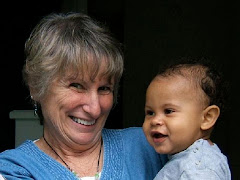Saturday, October 2, 2010
Verbal First Aid
Check outhttp://www.huffingtonpost.com/judith-simon-prager-phd/keeping-crises-from-becom_b_737465.html to learn about minimizing the effects of trauma. In particular, scroll down to The Firefighter and the Little Girl. And then stay tuned for information about the newly recognized (note: not newly produced) hormone called Oxytocin. It is the hormone which connects us to one another in a positive way but a hormone that our brain is taught to release.
Subscribe to:
Post Comments (Atom)



It is important to remember not all adopted children suffer from RAD. RAD is most likely to appear in children who were neglected or abused. RAD can not only occur in adopted children but biological children as well. Educate yourself and be aware of the signs and symptoms.For more information about RAD visit here.
ReplyDeleteReactive attachment disorder
Thanks Ranjeet and I would add that biological children can have attachment issues as well. And I much prefer to think of it as issues and challenges rather than any kind of disorder. Unfortunately, in the mental health field it is often necessary to give such a label in order to get the needed services.
ReplyDeleteMany children and adults with attachment issues had some kind of trauma that was unexpected, unprocessed and misunderstood.